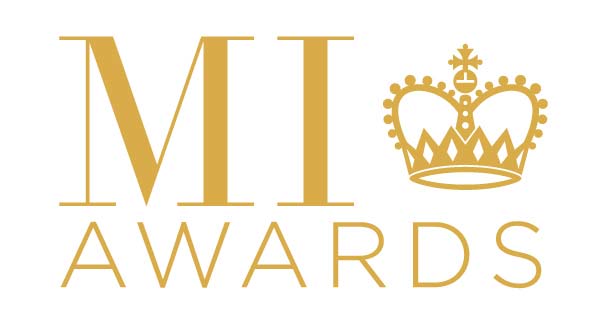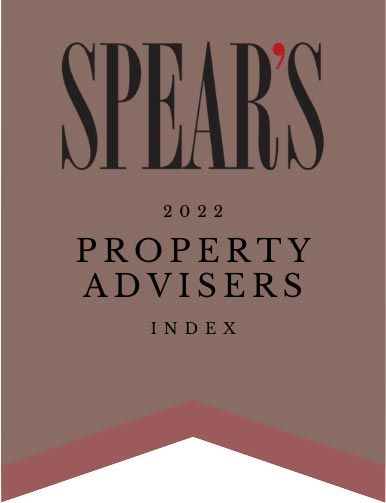Interest-only mortgages are a sensible option for people who get paid in large bonuses or whose salary is mostly commission based because monthly payments are kept low. The low monthly payments act as a financial buoy as your cash status peaks and troughs, allowing you to control costs more effectively. The flexibility that this mortgage provides means that they are in high demand.
However, these mortgages are not as common as standard mortgages, and there is a more stringent lending criteria. It’s necessary to justify why this is the most sensible option, which is why it is particularly fruitful to connect to the right mortgage advisers, who have access to the broader market across banks, building societies, private banks and boutique lenders. Large Mortgage Loans take an advisory role and guide you through the process.
Our UK financial services professionals, based in London, set up to build a team of property finance advisors in 2003 to facilitate mortgage loans. Since then, we have been exposed to a range of scenarios, and as a result, we are adept at problem-solving. In a recent case, we helped two self-employed brothers achieve their goal of buying a £3.1m property by leveraging their mother’s multi-million-pound property portfolio and six-figure income as security. Without our knowledge of the broader market, these clients may have lost the opportunity to buy their dream home.
What Are Interest Only Mortgages?
Interest-only mortgages do exactly what they say – borrowers only have to pay off the mortgage loan interest. Interest-only mortgages are attractive because the monthly repayments are more affordable than repayment mortgages.
Interest-only mortgages are a viable product for people whose income is made up of large bonuses or commissions. They can be a shrewd option for those who plan to live in their property for a short time, or for those whose job is contingent on bonuses, or for those who have other assets which will cover the mortgage debt. At the end of the mortgage, you will need to pay off the capital loan for the property. If you have a robust financial profile, this type of mortgage makes sense from a long-term planning perspective because you are more agile, and it provides you with complete flexibility.
Landlords who take out buy to let mortgages prefer interest only mortgages because they use rent to cover mortgage repayment as the property yields value. Likewise, lenders are also keen to lend to buy to let property as the property can easily be sold at the end of the mortgage term to repay the outstanding balance if it is required.
How Much Can I Borrow With An Interest Only Mortgage?
Your Large Mortgage Loans adviser will review the lending limits offered against the value of your property by the lenders in our portfolio. We work with over 300 specialist lenders to ensure that we obtain the most beneficial solution for your particular circumstances, even if they are complex. We will look at your property value, income and required loan size to ensure that we meet your needs, while ensuring financial security and peace of mind. Loan to property value ratios of up to 60% can be achieved.
What are The Typical Interest Only Mortgage Terms and Rates Available to Me?
While every lender’s terms vary, a typical term for interest only mortgage could be for a little as 2 years and the maximum would be up to 25 years. As we mentioned above, the only monthly repayment you will have is the interest rate which can be fixed or variable. How long you intend to take the mortgage out for, will affect the rate at which interest is charged. Low rates are not necessarily the key driver for every personal circumstance. At Large Mortgage Loans we ensure that borrowers clearly understand the monthly payments they will need to make. We uncover and highlight any potential unforeseen costs, such as a clause that could prevent you from paying back capital before the end of the mortgage terms have ended.
What Are the Advantages of Interest Only Mortgages?
- Low monthly repayments The flexibility of low payments can serve as a financial buoy. The culmination of your income or investments may come to fruition before the mortgage repayment is due.
- A financial investment. As the property market rises, buying a property with the intention of paying off the capital at a late stage could result in a large profit. However, the risk is buying the property and being forced to pay the outstanding balance just as the market nosedives. This property investment strategy is contingent on good time, and judicious investors. It is a high-risk strategy which could lead you to ending up in a vulnerable position.
- Buy to Let rental income If you are investing in a buy to let property, then an interest only mortgage can buy you the time to accumulate rental income from tenants, in order to pay off the capital at the end of the terms. In this instance, you must be extremely cautious not to spend any of the rental income.
Interest Only Mortgage Calculator
We appreciate that at this stage, you are probably in the initial stages of finding out whether an interest free mortgage is a worthwhile pursuit. Use our interest free mortgage calculator to help you gauge how much you can afford to borrow.
What is the Difference Between Interest Only and Repayment Mortgages?
Repayment mortgages offer you the option of paying off interest on your loan alongside a lump of the loan. While your monthly payments will be higher, the loan will be paid off in full over a period of time. Unlike zero interest mortgages where you will not pay off the cost of the property until the mortgages terms cease.
Hybrid mortgages are available through our lending network, which allow you to pay off part of the mortgage repayment while saving the rest of the loan repayments for the end of the term loan. For a more complex setup, one of our advisors can find creative solutions to suit your needs and package them by connecting you to a myriad of niche lenders.
What Is The Criteria For An Interest Only Mortgage?
When lenders are assessing your financial profile for eligibility, you must pass their affordability checks. Because these types of loans leave lenders more exposed than a standard mortgage, therefore the affordability criteria is more stringent than it is for standard loans. While the criteria may vary, there are invariably some key ‘tick boxes’ which borrowers must be able to meet:
- A proven plan of how you intend to pay off the loan at the end of the terms
- A deposit of at least 25% (higher than a standard mortgage)
- You must provide paperwork as evidence to prove that you are capable of paying off the loan
- A strong financial profile
- Security to prove that you have assets and other payment vehicles should you fall behind on payments at the end of the loan
The following types of vehicles would be deemed as acceptable repayment vehicles by lenders:
- Stocks and shares ISA
- Endowment policies/Investment bonds (a life insurance contract designed to pay a lump sum after a specific term)
- Pension savings
- Land or property
- Unit trusts
What Happens When An Interest Only Mortgage Ends?
Once you have reached the end of your interest only mortgage terms, you will have to pay off the rest of the capital in one large sum. You should not enter an interest only mortgage term unless you are confident that you will have the means to repay the loan. However, if you don’t have the money to do this upfront, there are a few alternative options available to you to settle the outstanding balance.
Talk to Your Mortgage Adviser
See if your mortgage advisor can pull some strings to get your mortgage terms extended. Try some soft negotiations to buy you enough time to get yourself in a stronger financial position.
Remortgage Your Property
Switch to a cheaper repayment mortgage. By taking out another mortgage you could repay your interest-only mortgage off. However, do bear in mind that your circumstances may have changed and you will need to meet a lenders criteria.
Sell Any Other Properties In Your Portfolio
This option is only available to landlords or anybody fortunate enough to own a second home. Use the equity you release from your other properties to pay off the outstanding balance.
Downsizing Your Home
Property downsizing can be used as a plausible repayment strategy. The property price could cover the whole loan amount and more. However, this is a risky move, you must consider the health of the property market because if you time your sale badly, you could run into negative equity.
Cash In On Your Investments
During the mortgage terms you may have acquired an investment portfolio. The power of compound interest serves you well during your mortgage terms, and as a result you could consider using the cash as a part repayment.
In the unfortunate case that you are unable to repay your interest only mortgage off, the only option is to sell your property. If the property does not meet the outstanding balance, or if you fall into negative equity, you may have to use any vehicles and assets you own as a form of repayment.
Interest Only Vs Retirement Interest Only
Interest only loans are set up exactly the same as Retirement Interest Only mortgages, with one main difference, a retirement interest only mortgage has no fixed end date, and the loan will only be paid off once the property is sold, or when the owner goes into care or passes away.
How Do I Apply For A Retirement Interest-Only Mortgage?
Contact Large Mortgage Loans and we will guide you through the process. Our aim is to keep the process as quick, simple and reassuring as possible, even if your circumstances are complicated.
- Initial enquiry – decide how much you wish to raise with your retirement interest only mortgage. To help you along, you can use our interest only calculator to work out how much you can borrow. Look at the section below regarding eligibility, which takes you through some of the documentation you can bring together to help your application along;
- Advice from Large Mortgage Loans – we offer personalised advice around what you want to achieve from your interest only mortgage, and will discuss all remortgaging options available to you – we want to ensure that this is the best product for you, to fulfil your objectives and ensure that long term you are in a better financial position. Large Mortgage Loans will undertake an affordability assessment with you, and ensure that your application is likely to be successful, before we seek a quotation from one of our lenders. This essential background work will be followed by a decision in principle and indication of terms;
- Interest-only mortgage acceptance and detailed quote – Large Mortgage Loans will provide at least one, and usually more, detailed market-leading quotes;
- Valuation – once the terms have been agreed, your independent advisor will arrange for a valuation of the property;
- Legal works – legal work can often be instructed at the same time as the valuation, to minimise any delay;
- Funds provided – You will be able to access your funds and free to enjoy the next stage of your venture.
Large Interest Only Mortgages
largemortageloans.com are adept at dealing with large mortgage loans from 500k, and have dealt with mortgages for up to £37 million. We can serve the unique interests of high net wealth individuals, and are well placed to deal with sophisticated financial profiles.
The Best Retirement Interest-Only Mortgage Plan
Large Mortgage Loans will talk to you about your circumstances and plans for the future. Our mortgage advisers are here to help you achieve your long term goals, while making repayments as flexible as possible for you .
We are very well placed to organise a mortgage repayment plan to suit your financial profile, whether you would like a repayment mortgage or an interest free mortgage- we will ensure that you are not left short. We work with over 300 niche lenders, private and high street banks, to assist you in sourcing a suitable mortgage product for your needs.
One of our specialist interest-only mortgage advisors will be available to talk through the options most suited to serve your needs.


























